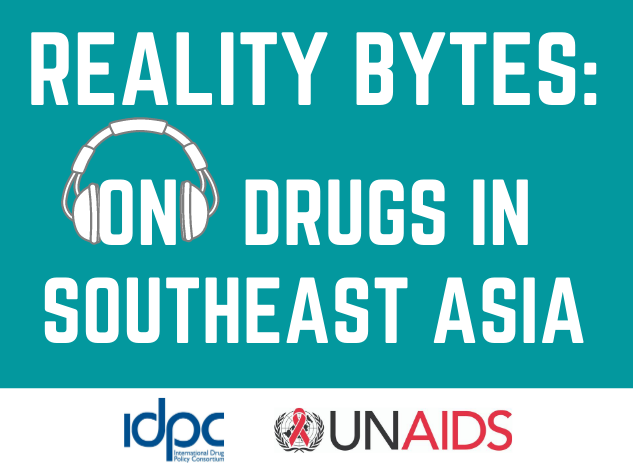Capturing LGBT pride in Asia

Watsamon Tri-yasakda who prefers to be called June is a 25-year-old freelance photographer who lives in Bangkok, Thailand. She graduated two years ago and her photo projects include event coverage as well as documentary photography and this year focused on lesbian, gay, bisexual, transgender (LGBT) stories. June photographed several major LGBT pride parades in Asia and recently covered “The One: Miss Teen Beauty Queen 2015” -a transgender teen beauty pageant in Thailand. UNAIDS spoke to June about her interests, passion and why she does what she does.
UNAIDS: You have used your photography talent to shed light on LGBT people and issues in Asia, why?
June: Last year, I worked full time as a photographer for an online media site. That is when I did a piece about a lesbian pageant in Thailand. At first, I was only supposed to cover the event but then the video team I was working with wanted to do more because they were foreigners and thought that the lesbian culture in Thailand was very unique. That is when I realized that Thai people tend to overlook some things that occur in our society and that is when I began to try to look at things from the perspective of an outsider.
What amazed me the most was what was in the media about the LGBT community. For example, in the news you will stories about the LGBT community when they are talking about crime and entertainment. Thailand is such an open place on the surface but deep down we are not really. That was the main push for me to do more projects for the LGBT community. I know that I won’t make that big of an impact but I hope it makes a difference in a small way.
UNAIDS: You also mentioned that Thai society is only accepting of LGBT people on the surface, what did you mean?
June: I think avoidance is part of the Thai culture. Generally, my western friends are more direct and aggressive while most of my Thai friends are mellow and always avoid the issue. There is this whole save-face culture in Thailand like in most of Asia. If two people of the same sex are seen holding hands on the street in the US, they might be verbally discriminated against to their face, but in Thailand, people will avoid the couple and instead talk about them in hushed voices. This doesn’t mean that we are accepting, it just means that we don’t do anything about anything. It’s not just the LGBT issue it’s a lot of other different issues as well where we resort to gossiping and indirect comments. That is a big problem. We need to stop this and talk about issues openly.
UNAIDS: Do you have a personal experience linked to this?
June: I do. One of my friends came out to his parents many years ago when he was in high school. His parents said “It’s okay that you are gay as long as you’re not showing your feminine side too much”. They asked him to keep his sexual orientation hidden especially from their relatives. So the only place he could be himself was at school and around his friends. I think that the general belief in Thai is that- it’s okay to be whoever you are as long as you are not my child, my friend or anyone else associated to me.
UNAIDS: What are the biggest struggles that LGBT people face in Thailand?
June: LGBT issues are very diverse. As for the LGBT community as a whole the major issue is discrimination. If you recognize that LGBT people are like everyone else and treat them with respect, I think a lot of problems could be easily solved. For example, in regards to the same sex marriage law, it’s not something special that the LGBT community is asking for. They are asking for something that heterosexual people already have – the right to freedom and the right to marriage.
UNAIDS: You recently photographed the teen beauty pageant held here in Thailand, what did you learn from the experience?
June: Something I have realized is that transgender people are just people born in the wrong bodies and I think that they are beautiful inside and out.
In the pageant there were six young transgender women who were working in the professional field, such as professors, vets and fashion designers. I hope this inspires a lot of other transgender people out there, it may be difficult but it is possible to hold professional jobs. Why aren’t stories of these people showcased in the media? The media is usually only focused on transgender women who are beautiful and I think that there is nothing wrong with that but what about the transgender people who are in the professional fields who are also successful? That is something I would want to do. I think it would be interesting to share their stories.
UNAIDS: As a young person today, what would you say to all the LGBT youth in Thailand that are confused and afraid of coming out?
June: You are not alone. There are so many people who feel like they are different and that they are alone in the world. There are so many people who have overcome their struggles and shared their stories. If you can’t find somebody near you, you can find examples of people who have succeeded online. Love yourself. Respect yourself.
UNAIDS: Where do you see yourself in the next five years?
June: In the next five years I see myself still working as a photojournalist and maybe be doing more stories on LGBT people. I don’t know if my stories will go viral or not but I hope that in the next five years they help some people out. Maybe I can bring about some change in the minds of people and even help LGBT people through
my work.
 UNAIDS Asia-Pacific
UNAIDS Asia-Pacific 


